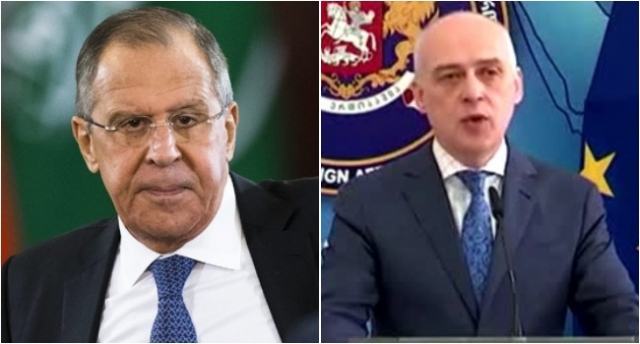Evaluating the Meeting between FMs Zalkaliani and Lavrov
A meeting took place on September 26 between Russia’s Foreign Minister (FM) Lavrov and Georgia’s FM Davit Zalkaliani, in New York at the UN General Assembly headquarters. The meeting, mediated by the Swiss, was exceptional in the sense that it was the first time the Georgian and Russian parties had met since ceasing diplomatic relations in the 2008 conflict.
It is notable that these talks were of minor scale, the topics of discussion encased by relatively minor issues, while the foremost political problems remained in limbo. The focal issue of reconciliation was still somewhat a trivial topic, commenced by Zalkaliani on the renewal of direct flights between the two countries (in June, Russia canceled all direct flights with Georgia, following the anti-Russian protests in Tbilisi).
“On September 26, I met with Georgian Foreign Minister Davit Zalkaliani, who himself demanded the meeting,” Lavrov said after the meeting. “Later, I read his comments, which, I think, took him more time than the meeting itself.”
The meeting between the two FM’s stirred up a commotion in Tbilisi, especially considering that September 27 was the anniversary of the 1993 Fall of Sokhumi (Abkhazia)- the overwhelming feeling among Georgians being that diplomatic dialogue was inappropriate to the occasion.
“We again hear these phrases about ‘occupation’,” the Russian Foreign Ministry responded. “It also seems that our Georgian colleagues are not so worried about the content and focus of these negotiations, but rather of their protocol and format. The interests of Russian and Georgian people require direct and honest talks.”
Tamar Khulordava, Chairman of the Committee of European Integration, answered the Russian comments by saying that “the fact that Russia does not admit to the occupation is nothing new to us: we should not be surprised by this phrasing from the Russian Foreign Ministry.”
“Everything else is a matter of negotiation,” she went on. “There are significant differences of interest between [Russia and Georgia], and that is why more intensive dialogue is needed with the ‘aggressor’. While every step towards reconciliation is welcomed by us, especially when the conversations aim at improving the well-being of our citizens, more importantly, the displaced group of people living in the occupied territories, and at de-escalating the situation overall. It is well known that there is always a threat of escalation at the occupation line, and these types of summits do not automatically mean de-occupation, but it is important for our people and our country.”
According to Khulordava, the dialogue needs to enter a deeper phase of negotiation about more profound topics that support Georgia’s interests in resolving the matter. She noted that it is not in Georgia’s interest to endure the status quo of “occupied territories, full isolation of these territories, citizens turned into refugees in their own country and unable to return to their homes, and those who are at risk 24/7 of waking up the other side of the occupation line.”
“We must do everything in our power to resolve this situation,” she said.
Indeed, the Zalkaliani-Lavrov meeting is seen by the ruling team in Georgia as a starting point that the ministries of both sides can work from, perhaps to be followed by a series of summits between the two FMs.
The US Department of State Spokesperson, Morgan Ortagus, responded to the September 26 meeting via twitter, affirming US support for the bilateral talks and even underlining their backing of Georgia’s territorial integrity.
“The United States welcomes the Georgia and Russia meeting facilitated by Switzerland,” Ortega tweeted. “We support Georgia’s sovereignty & territorial integrity and urge Russia to end its illegal occupation and decrease tensions along the Administrative Boundary Line.”
International organizations such as the UN and OSCE also welcomed the meeting and supported any action guaranteeing peace and stability in the region.
The EU in turn issued a statement, declaring: “peaceful dispute settlement, … is fully supported by the EU.”
The opposition naturally criticized the ruling party, and primarily Zalkaliani, for having a weak negotiating stance, as well as breaching the Geneva mandate. The pro-western opposition judgmentally disapproved of Zalkaliani’s offer to meet with Lavrov, while the Russia-friendly opposition praised the meeting, all the while claiming it as a mere “pre-election stunt.” Nevertheless, all opposition parties look forward to summoning Zalkaliani to a committee hearing in Parliament.
By Beka Alexishvili
Related Story: A Simple Story of the Zalkaliani-Lavrov Meeting












